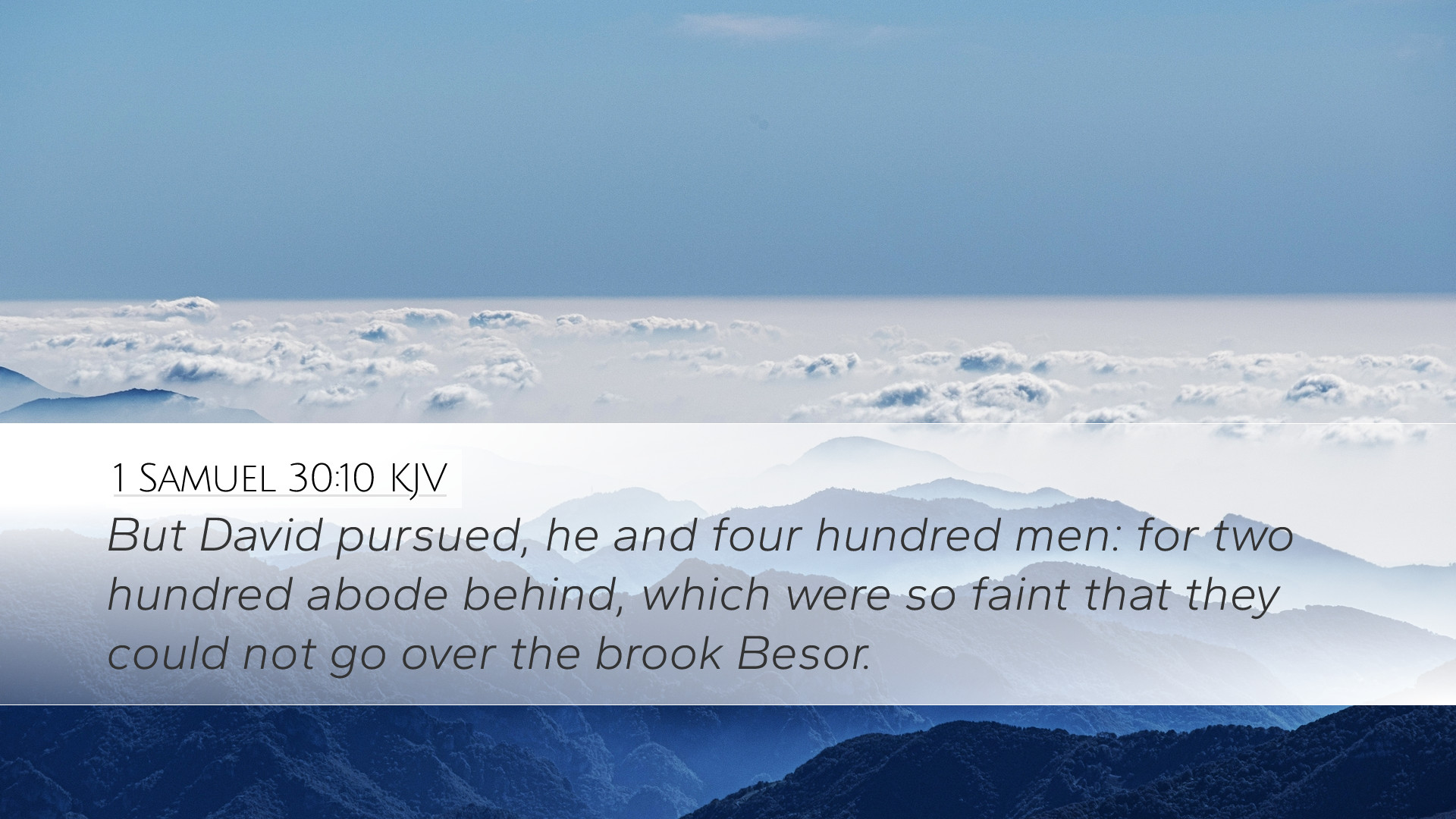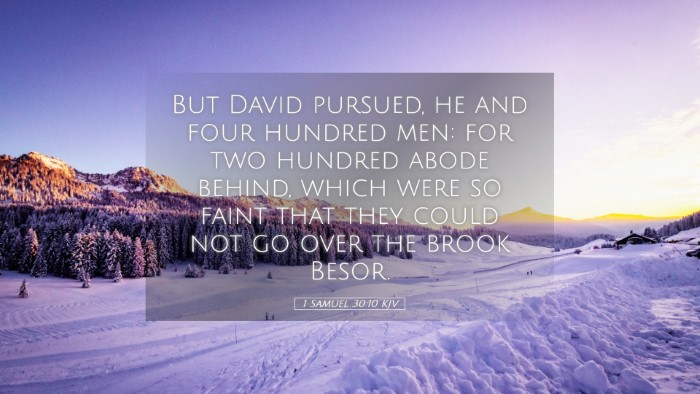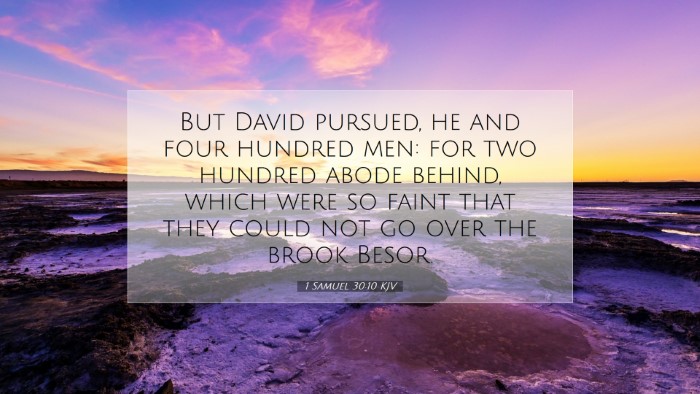Commentary on 1 Samuel 30:10
Verse: "But David pursued, he and four hundred men: for two hundred abode behind, which were so faint that they could not go over the brook Besor." (1 Samuel 30:10, KJV)
Introduction
The passage of 1 Samuel 30:10 finds David and his men at a crucial juncture during a period of tragedy and loss. As they return from a campaign, they discover their city, Ziklag, has been raided, and their families taken captive. This moment illustrates the themes of leadership, resilience, and the burdens of service. The commentaries of Matthew Henry, Albert Barnes, and Adam Clarke provide deep insights into the implications of this verse that resonate with contemporary readers.
Contextual Background
David, anointed as the future king of Israel, faces considerable trials. After fleeing from Saul, he has taken refuge with the Philistines, wresting a form of loyalty amidst his hardship. His men, weary from battle and emotionally drained, are part of a larger narrative where David’s leadership is tested.
Historical Setting
- The Amalekites had raided Ziklag, burning it and taking captives, including David’s wives.
- This raid occurred during a time of uncertainty when David was seeking the protection of his Philistine overlords.
Exegesis of 1 Samuel 30:10
Division of the Army: The verse illustrates a tactical decision made by David, who pursues the raiders with four hundred of his men while leaving behind two hundred who were too faint to continue. This division is pivotal, as it indicates both David’s strategic leadership and the real constraints his men faced.
Insights from Matthew Henry
Insights from Albert Barnes
Albert Barnes highlights the significance of the brook Besor as a symbolic boundary that not all followers may cross. This moment illustrates the concept that in times of distress and crisis, not everyone can be expected to maintain the same level of commitment or vigor. His remark sheds light on the necessity of assessing the readiness and capability of one’s companions, especially during warfare.
Insights from Adam Clarke
Adam Clarke notes the lesson of encouragement derived from this verse. He points out that even the strongest leaders may find their ranks thinned by fatigue and fear. Clarke suggests that David's decision reflects not merely a tactical retreat but also highlights the importance of looking after his men, indicating a compassionate approach to leadership amidst adversity.
Thematic Analysis
This verse embodies several rich themes critical for understanding effective biblical leadership and human resilience:
- Leadership and Responsibility: David's choices demonstrate the burden of leadership. A good leader must weigh the capabilities of their followers, making decisions for the greater good while providing care and understanding for those unable to continue.
- Compassion and Understanding: The necessity of compassion is highlighted. Not all can withstand the rigors of every battle, and true leaders recognize when to push forward and when to support those who remain behind.
- Community and Unity: The division between the four hundred and the two hundred serves as a reminder that community consists of various strengths and weaknesses. Acknowledging these differences is crucial for unity in times of trial.
Application for Modern Readers
The lessons contained within 1 Samuel 30:10 are timeless and provide significant insight for pastors, theologians, and students of the Bible.
Leadership Lessons
Leaders today can learn to assess the strengths of their teams carefully and recognize the importance of compassion. David's action to leave behind those unable to continue not only reflects strategic planning but also embodies the role of a leader as a caregiver.
Encouragement in Community
This verse encourages believers to understand that within any community, there will be those who are weary. Providing space for healing and support is essential. Churches and organizations can take this lesson and implement support systems for those feeling overwhelmed.
Resilience Amidst Trials
For individuals facing challenges, the account demonstrates that while one may feel unable to continue, it does not diminish their value or potential. God honors those who are weary, and often, recovery comes through community support and understanding.
Conclusion
In conclusion, 1 Samuel 30:10 is more than a historical narrative; it offers profound insights into the nature of leadership, community, and resilience. By examining the wisdom of public domain commentators, we can draw out valuable lessons that encourage modern readers, equipping them to navigate their unique challenges with compassion and understanding.


